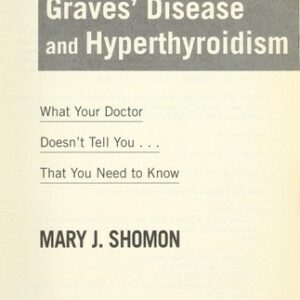Being There
$28.00
| Title | Range | Discount |
|---|---|---|
| Trade Discount | 5 + | 25% |
- Description
- Additional information
Description
A powerful look at the importance of a mother’s presence in the first years of life
**Featured in The Wall Street Journal, and seen on Good Morning America, Fox & Friends, and CBS New York**
In this important and empowering book, veteran psychoanalyst Erica Komisar explains why a mother’s emotional and physical presence in her child’s life–especially during the first three years–gives the child a greater chance of growing up emotionally healthy, happy, secure, and resilient.
In other words, when it comes to connecting with your baby or toddler, more is more.
Compassionate and balanced, and focusing on the emotional health of children and moms alike, this book shows parents how to give their little ones the best chance for developing into healthy and loving adults. Based on more than two decades of clinical work, established psychoanalytic theory, and the most cutting-edge neurobiological research on caregiving, attachment, and brain development, Being There explains:
• How to establish emotional connection with a newborn or young child–regardless of whether you’re able to work part-time or stay home
• How to ease transitions to minimize stress for your baby or toddler
• How to select and train quality childcare
• What’s true and false about widely held beliefs like “I’m not good with babies” and “I’ll make up for it when he’s older”
• How to recognize and combat feelings of postpartum depression or boredom
• Why three months of maternity leave is not long enough–and how parents can take control of their choices to provide for their family’s emotional needs in the first three years
Being a new mom isn’t easy. But with support, emotional awareness, and coping skills, it can be the most magical—and essential—work we’ll ever do.“A must-read for young women struggling with the inner conflict between mothering and career-making. Komisar brilliantly distills the potency of present mothering from her experience as a psychoanalyst and parenting coach. She also evokes the emotional pain of babies and toddlers when their mothers are often absent or inattentive and the ‘wormhole to adolescence’ where all those unresolved losses will be replayed at a more punishing stage. I only wish that I and many driven career women of my early feminist generation had read this essential guide before we sacrificed Being There to proving ourselves in a man’s world.”
–Gail Sheehy, author of Passages and DARING: My Passages
“Being There is a terrific and very timely book that is much needed as our country is dealing with an epidemic of emotionally troubled children, adolescents, and mothers. Well-written and researched with excellent documentation from respected experts in this field, it should be read not only by current and prospective mothers and fathers, but also by those who care for young children in a variety of settings.”
–Thomas McInerny MD, FAAP, Past President of the American Academy of Pediatrics
“It’s hard to believe but the United States is actually behind, well behind, the rest of the world in maternity leave policy. We all, not just the mothers, fathers and children pay dearly for this. In this book, Erica Komisar provides hard headed and practical advice for families and policy makers. It is a rare and valuable contribution to the field.”
—Leslie H. Gelb, President Emeritus, Council on Foreign Relations
“It should not take a psychoanalyst to explain the importance of maternal love and support in the formation of a child, but Erica Komisar in her book Being Theredoes just that, cutting through the head-spinning Mommy Wars that have haunted this generation of parents. Her challenging assessment that absent and distracted mothers leave their children forever less happy will upset apple carts and give many over-taxed young parents pause, but she accompanies her tough medicine with realistic tools and strategies to help caregivers meet their challenging task. Komisar’s book is difficult, but necessary reading for any parent-to-be.”
–Eric L. Motley, Ph.D, Executive Vice President, The Aspen Institute
“Being There is a mindful and honest approach to both the joys and challenges of motherhood. This must-read guidebook for stay-at-home and working mothers shows us how to be present not only for our babies but for our lives.”
–Mary T. Cantwell, Co-Director, Garden House School of New York
“Here’s the problem. That beautiful baby doesn’t arrive with a how-to manual in his chubby arms and I’d come to believe that there is no right way to bring up a child. But along comes Erica Komisar, a warm and experienced psychoanalyst, with the key to the puzzle of how to achieve two things at once: a kid set to become a happy, emotionally secure person and a mother who is effective and fulfilled. It happens, simply, by “Being There” most of the time throughout the first three years of a baby’s life. If you think this isn’t for you, just read this book and think again. Nobody said it would be easy.”
–Marilyn Berger Hewitt, broadcast journalist, contributing writer Washington Post and New York Times and author of This is a Soul
“Timely and highly informative. Using the direct voices of the most important scientists in the field, Erica Komisar describes in clear and compelling fashion the foundational events of the early years, an unparalleled time of growth of the baby’s right brain that is indelibly shaped by the maternal relationship. In addition to providing practical and very personal information to the reader on how to be ‘the best, most present mother she can be,’ this gifted psychotherapist also offers controversial political implications of advances in the developmental sciences for the mental and physical health of future generations. This rich amalgam of science, clinical wisdom, and common sense represents a Dr. Spock for the twenty-first century, and is quite simply the best book I’ve ever seen on this absolutely essential topic”.
–Allan N. Schore, Ph.D., Department of Psychiatry and Biobehavioral Sciences, University of California at Los Angeles David Geffen School of Medicine
“Being There is a courageous, bold and invaluable book that challenges us to consider our roles as mothers. Erica Komisar has written a beautiful book that pushes the reader to consider how to be the best possible mother she can be while supporting her through the process.”
–Carly Snyder, M.D., Host of the weekly radio show MD for Moms
“The beauty and practical value of Ms. Komisar’s book is that she gives specific suggestions on how women can be more emotionally present for their child regardless of their career, financial constraints and the amount of time they can spend with their children. A must-read for both parents, mental health professionals and childcare policy makers.”
–Dr. Ellen Jacobs, Child and Adolescent Psychotherapist, Adjunct Professor at the Columbia University School of Social Work
“Solid research and easy-to-follow advice…because American society has moved so far away from accepting mothering as a crucial job, it’s quite welcome.”
—Kirkus Reviews
“Offers sound, warm guidance.”
–Publishers Weekly
Erica Komisar, LCSW is a clinical social worker, psychoanalyst and parent guidance expert who has been in private practice in New York City for the last 25 years. A graduate of Georgetown and Columbia Universities and The New York Freudian Society, Ms Komisar is a psychological consultant bringing parenting and work/life workshops to clinics, schools, corporations and childcare settings including The Garden House School, Goldman Sachs, Shearman and Sterling and SWFS Early Childhood Center. She lives is New York City with her husband, optometrist and social entrepreneur Dr. Jordan Kassalow, and their three teenage children.
Chapter 3
What Does It Mean to Be a Present Mother?
How Do We Define Presence?
You are sitting on the floor with your one-year-old, close to him but giving him room to play. You make eye contact frequently and lovingly touch him often. You watch him play, cooing and observing and describing his emotions and actions to him. You smile when he smiles at you and wait patiently when he needs to look away or at an object, ready to reengage when he gives you the cues he is ready.
When he is frustrated or angry, you mirror his feelings using your voice and facial expressions. It is helpful to try to imagine your own experience of discovery and wonder as a baby looking at and touching an object for the first time, experiencing it with your own mother. You are enjoying sitting on the floor, playing with your baby and being engaged in the experience, not thinking about the dishes in the sink or your email. You and your baby are involved in a dance of connection and space, attachment and separation, engagement and disengagement, rupture and repair. Sometimes your baby leads and you follow, and sometimes you lead and your baby follows. This playfulness and intimacy helps shape your baby’s developing brain and personality. To do this you must be in the moment, let go of all the adult means of distraction and stimulation. You need to focus on eye contact, touch, your tone of voice, facial expression, body language and awareness of your own mood and emotions.
Sometimes you may get bored or sleepy when playing with your baby, feeling understimulated yourself. This is as natural as when your baby looks away for a moment to collect himself and take a break from you. If you wait, then this moment passes and you reengage with your baby.
The Oxford dictionary defines presence as “the state or fact of existing, occurring, or being present.” Physical presence is the most obvious form of being there; certainly without a mother’s physical presence there is no emotional presence for a child. However, it is important to note that a mother can be with her child physically and still be emotionally checked out.
For a mother to be present, she must first be self-aware about and accept her own (sometimes conflicted) feelings about motherhood. In addition, she must be willing to make her child a priority in the time she spends with her. This means not only spending as much time as possible with a child during her first three years of life but also focusing on how that time is spent. We’re addicted to multitasking—reading our email while watching TV, sneaking a peak at our text messages at the dinner table. Yet researchers like Earl Miller, a neuroscientist at MIT, have shown that, in fact, that kind of divided attention is both destructive to relationships and stressful to individuals.
Presence also means emotional engagement. Dr. Beatrice Beebe, of Columbia University, and Dr. Miriam Steele, of the New School for Social Research, have done a lot of research in attachment and infant–mother interaction. They described in great detail the importance of the attunement of a mother to a baby in the early years. Attunement is another way of describing the dance of emotional interaction between a baby and a mother. When we dance, we need a partner who is present, responsive, and interactive, or else we are essentially dancing alone. This dance is how a mother helps her child learn to negotiate relationships and to develop a secure sense of herself in the world.
Presence means finding enjoyment in the experience of being with your baby and being able to tolerate the boring moments. Discovering the beauty and fascination in the little things throughout the day that your baby is learning. Presence means pleasure.
Finally, presence means that when a mother cannot be there, she is sensitive to the cues of her child when she returns, she is aware when she has been away too long or is too disconnected. Children are wise beyond their years. They are born with an innate sense of their essential needs and a pace of development that is unique to each of them. The director of the New School’s Attachment Research Center, Dr. Howard Steele, defined sensitive mothering as the capacity to respond promptly with appropriate care and concern to a child’s distress. When a mother is present for her child, she learns to read and interpret her child’s subtle (and sometimes not so subtle) nonverbal cues, which will tell her what that child needs and how he is coping with separation. A mother’s sensitivity will alert her to whether those needs are being met, or not, and can instruct her in how to help her baby upon her return. For example, when a baby is extremely anxious and clingy or turns away from his mother after a separation, a sensitive mother recognizes this as her child’s experience that she has been gone too long, and she needs to repair the rift.
We do not live in a perfect world, and there are times when we cannot meet all of our children’s needs, emotionally or physically. When this happens, we need to know how to repair the misalignment of their needs and our ability to meet those needs. You have to accept that some of these failures can be healed and some cannot. Repairing the separation makes a baby emotionally stronger and more resilient; immediately addressing the damage created by absence and temporary disconnection is the most successful approach to repairing it, but it is never too late to do so, even with older children. I will address how mothers can learn to repair these misalignments in Chapter 8.
US
Additional information
| Weight | 13.4 oz |
|---|---|
| Dimensions | 0.9600 × 5.7000 × 8.5000 in |
| Imprint | |
| Format | |
| ISBN-13 | |
| ISBN-10 | |
| Author | |
| Audience | |
| BISAC | |
| Subjects | first mothers day gifts, mothers day gifts, attachment, Child Development, new mom, mom books, mom gifts, parenting book, nanny, mothers day books, infants, mom book, motherhood books, stay at home mom, first mothers day gifts for mom, postpartum depression, attachment parenting, newborn baby, being there, FAM032000, toddlers, mental health, psychology, self help, anxiety, mothers, homeschool, FAM025000, parenting, motherhood, parenting books, gifts for mom, mother's day, mothers day, books for mom, Babies, pregnancy, self care, 1st mothers day gifts |











